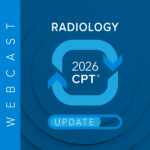Non-compliance in healthcare typically means a patient who intentionally refuses to take prescribed medication or does not follow treatment recommendations. This term is often used in medical documentation as physicians and/or care team professionals categorizing patients in the ‘not doing what I say’ category. The effects of this term project’s a picture of intentional negligence by the patient, placing blame on their choices. Non-compliance was once a more popular term used in the medical community to remove perceived risk from the provider, however, recent research has created a different picture. According to research from Sous, W., Frank, K., Cronkright, P. et al. (2022), the term ‘non-compliant’ has been shown to compromise care, particularly for marginalized communities. Ethically, this term has failed to demonstrate a provider’s respect for patient autonomy and has created a reverse effect of the ‘do no harm’ mantra.
So, let’s give a hypothetical example, Mr. Jones has been placed under observation services at the local hospital for evaluation of his chest pain. Mr. Jones lives alone about 20 miles from the hospital where he is seeking care. While working outside, he started having shortness of breath and chest pain leading him to call 911. At the hospital, the care team starts running numerous tests on Mr. Jones, but all he can think about is his land and his animals back home. Mr. Jones is concerned about his heart but was just hoping for some medication and to be back on his way. He really doesn’t like doctors’ offices, much less hospitals and has spent many years avoiding them. When the physicians come in the room, they tell him what they are doing using hard to understand medical terminology. The nursing staff have been giving him medications and hooking him up to machines again with confusing medical terms. Mr. Jones has now been at the hospital overnight and although he is feeling better, he does not see the need to stay. He has his animals at home that need to be fed and he wants to take care of his property. Mr. Jones requests to leave. At this point all efforts kick in from the hospital as they term Mr. Jones as wanting to leave against medical advance, AKA, the AMA discharge and document his behaviors as non-compliant in the medical record. Rather than diving into the misconception of the AMA discharge and Mr. Jones concerns. I will say that Mr. Jones agrees to help with his discharge and get the information he needs for follow-up care and the care team even helps coordinate a ride home. However, the labeling in his record stands, he is a ‘non-compliant patient with an AMA discharge’.
The scenario creates the picture that our lives are filled with competing priorities and stressors. With the best of intentions, the non-compliant patient does not take their medication because they do not have the money to do so. The non-compliant patient misses their doctor’s appointment because they have no transportation or maybe the city bus was late. As a healthcare community, rather than labeling our patients based on our own perspective of privilege we should use the situation to ignite a call to action that we may have overlooked a valuable piece in our patient’s healthcare needs. What if instead of just assuming the patient is simply not following medical advice or making their medical care a priority, we consider the following.
- Break down the process into more manageable steps and apply such methods as teach-back to assess the patients’ understanding of their healthcare requirements.
- Evaluate the patient’s motivation towards their care and potential barriers they may be dealing with.
- Assess for social determinants and cultural considerations that may make the information provided or their treatment requirements difficult to follow or comply with.
- Encourage patient input and feedback to generate their own ideas and suggestions into their care needs.
I would imagine in our lives at one point or another we all could be labeled as non-compliant and in the busy schedule and demands on our healthcare system sometimes it is easier to write ‘non-compliant’ then figure out the reasons why. However, this impacts access to care and healthcare outcomes for our patients.
References:
Sous, W., Frank, K., Cronkright, P. et al. Use of a simulated patient case and structured debrief to explore trainee responses to a “non-compliant patient”. BMC Med Educ 22, 842 (2022). https://doi.org/10.1186/s12909-022-03894-7













